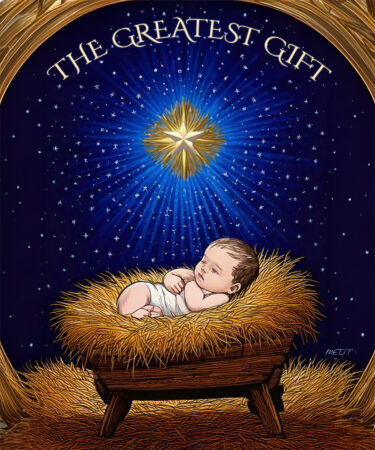 What does Christmas mean for us today, in the Year of Our Lord Two Thousand and Twenty-Four? The decade in which we find ourselves began with a pandemic, and has, since then, seen the rise of significant global turmoil, economic turbulence, and social tensions; in the lather of the last American election—and with a Canadian federal election on the horizon—we can easily get caught up in the news cycle’s constant roil—to say nothing of the smartphone’s endless scroll.
What does Christmas mean for us today, in the Year of Our Lord Two Thousand and Twenty-Four? The decade in which we find ourselves began with a pandemic, and has, since then, seen the rise of significant global turmoil, economic turbulence, and social tensions; in the lather of the last American election—and with a Canadian federal election on the horizon—we can easily get caught up in the news cycle’s constant roil—to say nothing of the smartphone’s endless scroll.
To such a world in such a year, Christmas comes like a Sabbath, a reprieve from the restless city’s unceasing business and busyness, a sacred and solemn day of rest. Christ did not come, of course, to calm the fevers of history: since His birth, wars have raged and empires have risen and fallen. But the Incarnation demonstrates God’s unmistakable commitment to remaining with us in history, to draw near to us, and to stay with us always.
He does so, moreover, not as a proud, remote prince. Nor is His advent ephemeral or ethereal: He is not simply a felt presence of philosophical peace. Instead, He is the Prince of Peace, the Infant Logos, God-with-Us, first in the womb and then in the cradle. His is not the tyrant’s mighty fist, but the grasping baby’s hand.
In Christmas, we recall this mystery with wonder. The miracle of God’s manifestation in the beautiful but fragile body of a baby abolishes the distance between the human and the divine—in person, in the flesh, and in the concrete reality of a specific place and time.
The fevers of the world will come upon us again—and a New Year will bring with it cares and concerns of its own. But we will greet them renewed by, and rejuvenated through, an encounter with the God, Whom, as Saint Augustine so rightly says, is younger than us all.
We at The Interim wish you and your family a very Merry Christmas, and a Happy New Year.




